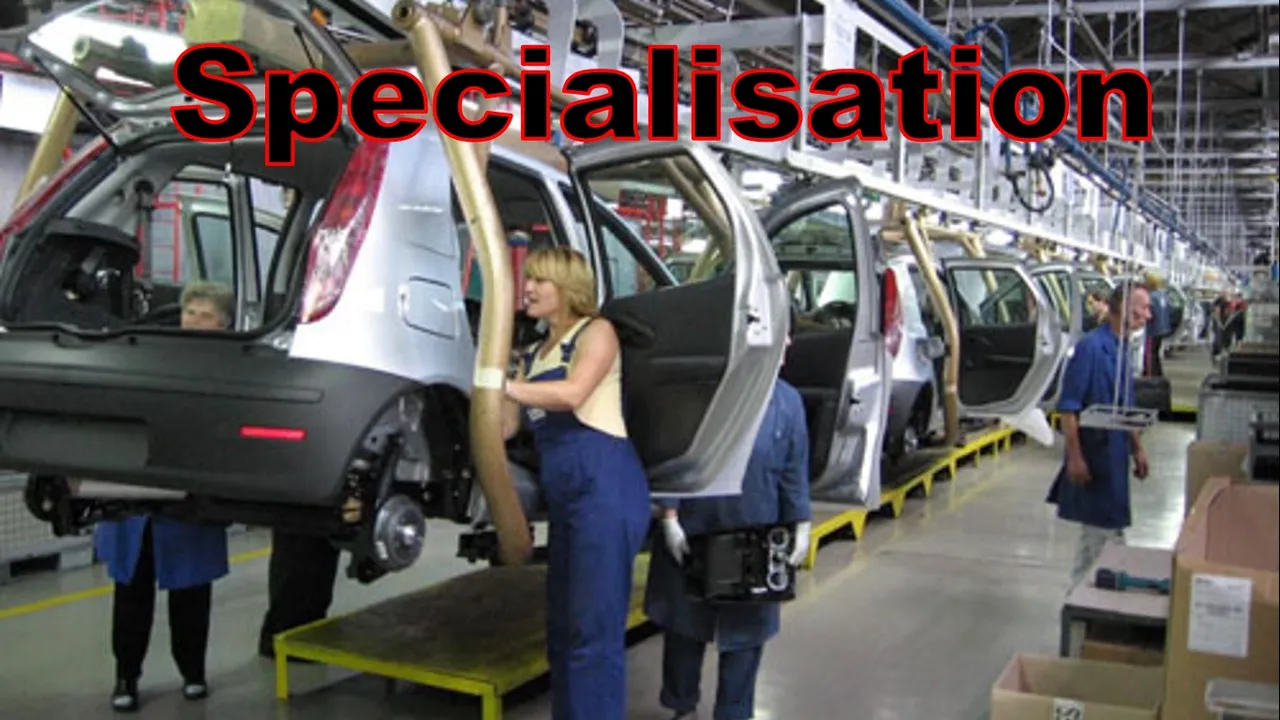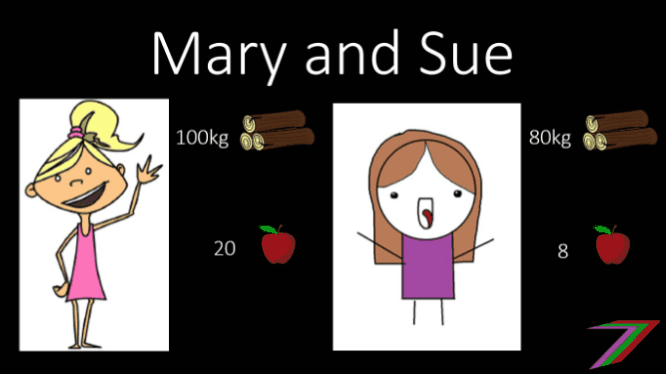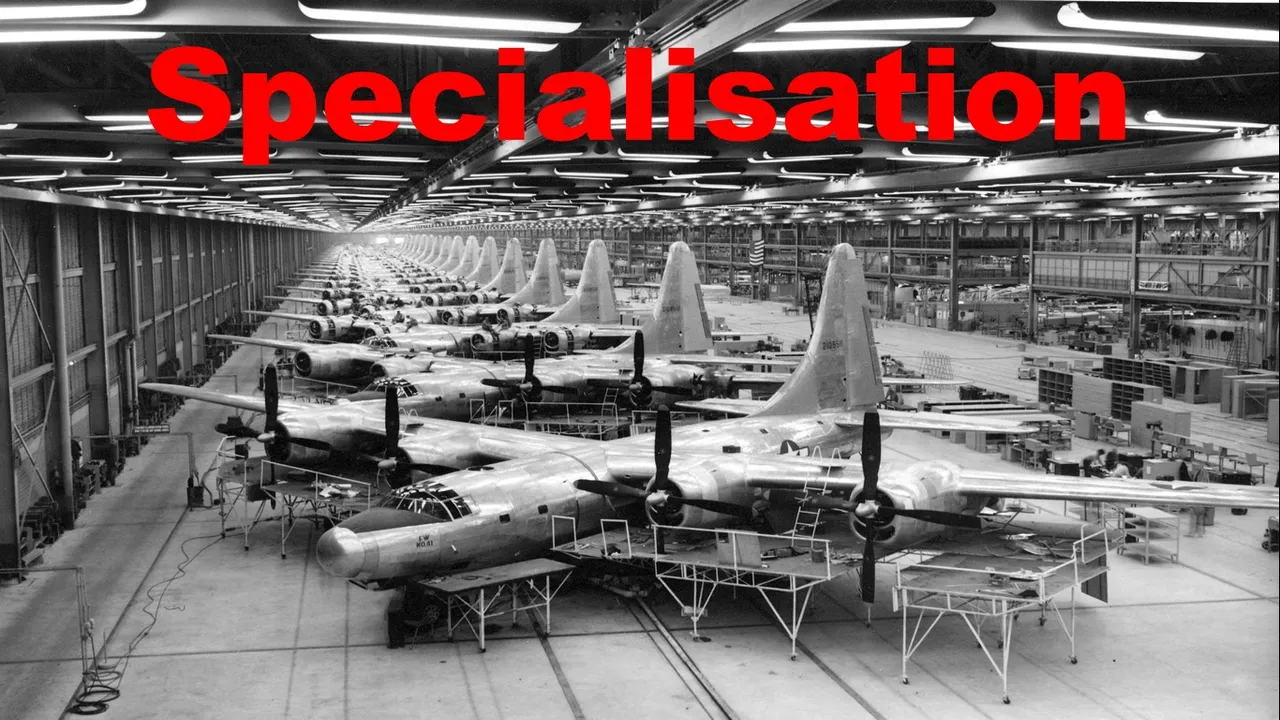
This is a short video briefly explaining the economic concept of specialisation. It is important to understand how specialisation works and how in theory specialisation can greatly improve efficiency in regards to production as well as encourage trade.
The focus of the video is comparative advantage and how comparative advantage can be used to determine who should specialise in what area.
What is comparative advantage?
Comparative advantage occurs when different people or groups of people have different opportunity costs of performing tasks. In other words, comparative advantage occurs when someone or a group of people are relatively more efficient at a particular task in relation to other people.
The video uses an example of two people, Mary and Sue. They have a choice of collecting wood or/and picking apples. Mary is relatively more proficient at picking apples in relation to collecting wood than Sue. Mary is able to pick 1 apple for every 5kg of wood she could collect. Mary has a lower opportunity cost for picking apples in terms of wood than Sue. Sue is relatively more proficient at collecting wood in relation to picking apples than Mary. Sue is able to collect 10kg of wood for every apple she could pick. Sue has a lower opportunity cost for collecting wood in terms of apples than Mary.
To improve efficiency, each girl should specialise according to her comparative advantage. Therefore, Mary should pick apples and Sue should collect wood. If Mary wants wood, she can trade with Sue.
The video demonstrates that specialising, based on comparative advantage, benefits both Mary and Sue. After trading apples and wood with each other. Both Mary and Sue would have needed to work several more hours to acquire the number of apples and amount of wood that they ended up with after trading.

The negatives of specialisation
Specialisation in theory can be very beneficial as demonstrated with Mary and Sue. Fordism is a real life example of the success of specialisation and mass production for the Ford Motor Company (not necessarily the employees of Ford).
Specialisation also has its downside; this is especially true for those people with the specialist skills. Specialisation can lead to boredom and lack of motivation. Specialisation can also limit career opportunities. Low skill specialisation is particularly bad as people are often replaced by machines or are forced to accept low wages if they competing within a large labour pool. These people are likely to have great difficulty finding alternative work because they have become too specialised in a particular area that may require skills that are now considered redundant.
Key points from video
Specialisation using comparative advantage is a theoretically sound approach to increasing efficiency and enhancing the benefits from trade. This was demonstrated using the example in the video.
Specialisation in reality can work to the benefit or detriment of those that have chosen to specialise. Specialisation is likely to result in the exploitation of those working in low skill specialised jobs. Specialisation can be a benefit to those with highly skilled specialised jobs but it is still useful to have exposure to others disciplines as well.
For more information on specialisation, you can read my detailed Steemit post which can be accessed using the following link:










▶️ DTube
▶️ IPFS

